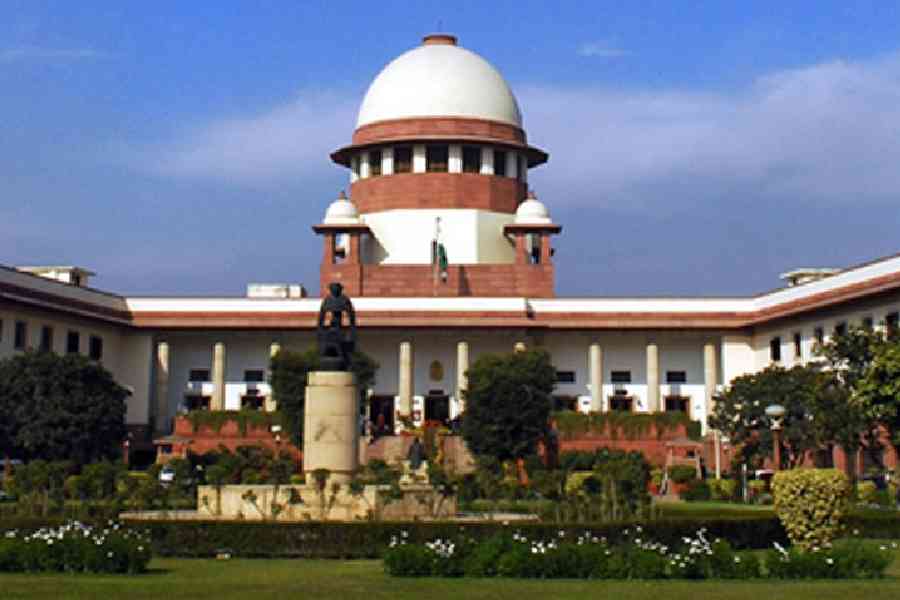Chief Justice of India D.Y. Chandrachud will head a five-judge bench that will begin hearing from July 11 a batch of petitions challenging the constitutional validity of the Narendra Modi government's decision to abrogate Article 370 in Jammu and Kashmir, which has been hanging fire for the past four years.
According to an official circular issued on Monday, the bench will also have the second senior-most judge, Justice Sanjay Kishan Kaul, besides Justices Sanjiv Khanna, B.R. Gavai and Surya Kant. The last three judges are also in the line to become CJI, according to their order of seniority.
The petitions challenging the dilution of provisions of Article 370, which gave special status to Jammu and Kashmir, had been filed in 2019, but the hearing had got deferred several times for various reasons, including the Covid-19 pandemic.
On February 17 this year, CJI Chandrachud had assured lawyers that their repeated pleas for early hearing of the petitions would be examined.
On September 23 last year, then CJI U.U. Lalit had said the court would list the petitions for hearing. It was the third such assurance by successive CJIs. But a constitution bench had not been formed before Monday and several judges had retired since the petitions were filed.
Justice Lalit had last September assured that the matter would be listed after the Dussera vacation before an appropriate constitution bench.
Prior to that on April 25 last year, then CJI N.V. Ramana had during the mentioning time said a reconstituted five-judge constitution bench would deal with the issue as one of the judges on the bench, Justice R. Subhash Reddy, had retired. Justice Ramana had said the matter could be taken up in July after the summer vacation. But it did not materialise and Justice Ramana demitted office on August 26 last year.
The matter was briefly heard in March 2020 by a five-judge bench of Justices Ramana, Kaul, Reddy, Gavai and Kant. The bench had then rejected a plea for referring to a seven-judge bench the constitutional validity of the Centre’s decision to scrap Article 370 provisions. The five-judge bench felt it was competent to examine the issue.
With Justices Ramana and Reddy having retired, the bench had to be reconstituted.
On December 20, 2018, President’s rule was imposed in the erstwhile state of Jammu and Kashmir, which was subsequently extended on July 3, 2019.
The President's rule was preceded by two orders passed by the Centre on August 5, 2019, cancelling Article 370 provisions and bifurcating the state into two Union Territories.
The plea for reference to a seven- or nine-judge bench had been made by some of the petitioners who had contended that the five-judge bench was not competent to deal with the issue as benches of similar composition had earlier passed conflicting judgments on the constitutional status of Article 370.
It was the contention of some of the senior advocates appearing for these petitioners that while one five-judge bench in the Prem Nath Kaul vs State of Jammu and Kashmir, 1959, had ruled that Article 370 was a temporary feature of the Constitution, another five-judge bench had in the Sampat Prakash vs State of Jammu and Kashmir, 1970, held that the provision was a permanent feature of the Constitution.











